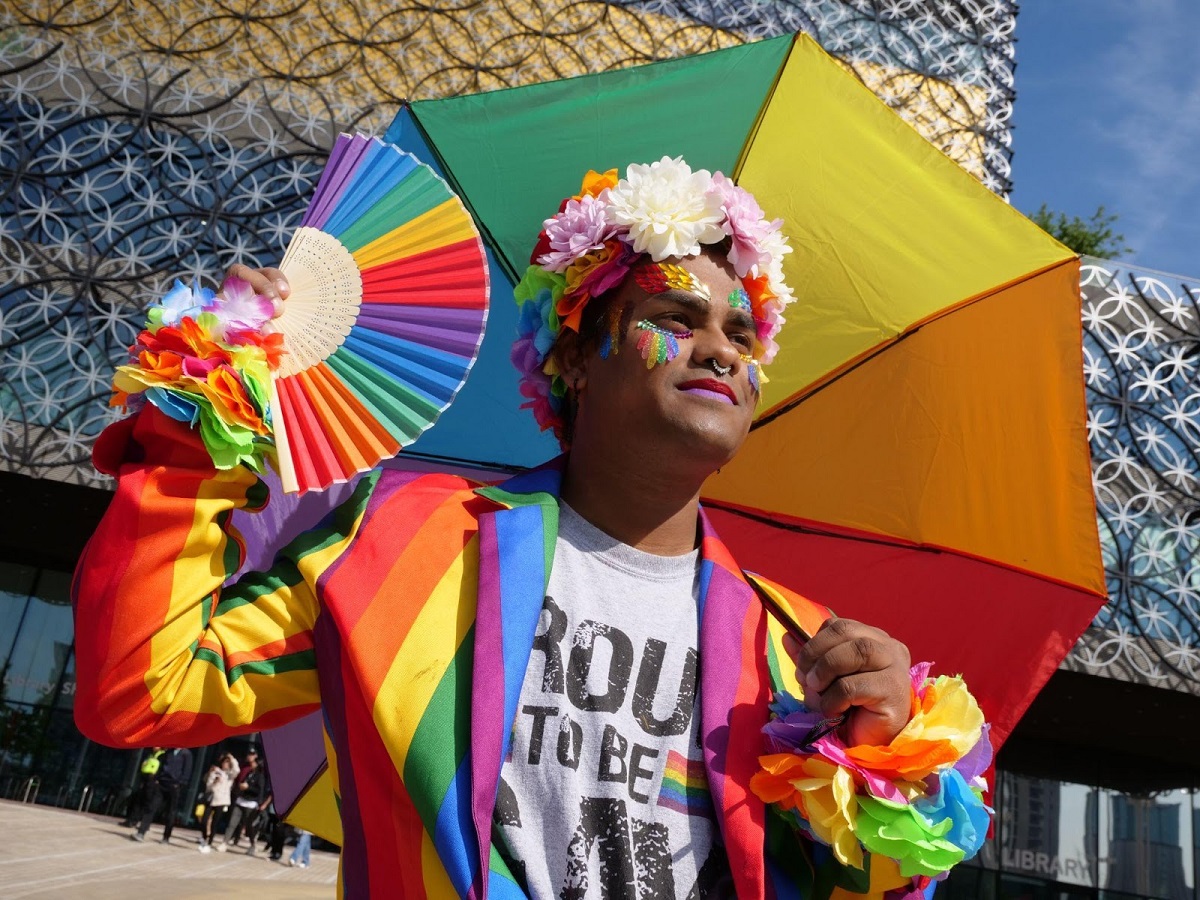Thousands of people descended on Birmingham city centre this Bank Holiday weekend to attend one of the country’s biggest LGBTQ+ festivals, with a special focus on providing sanctuary to individuals from marginalised communities. Officially launched in Centenary Square, the Birmingham Pride parade saw thousands of people march through the city showcasing Pride flags, brightly coloured rainbow floats, shimmering costumes and powerful banners celebrating equal love.
The theme for this year’s festival was ‘Power in Pride’ in response to rising hate crimes in the UK, especially against trans people, while also highlighting anti-LGBTQ+ policies across the globe. This year, hundreds of people struggling with or fleeing persecution from other countries came out to stand proud to be themselves.
Nazir Uddin from Bangladesh said that the festival made him feel safe and welcome. “In Bangladesh it’s illegal to be homosexual by law and there’s no LGBT community,” he said. “Being homosexual is a crime and everyone sees us like we are not a part of society.
“All the LGBT community in Bangladesh are under threat and they are very scared to open up with their sexuality, so there is no one who can work on LGBT human rights; so this Pride means a lot to me. It’s giving me a chance to express my true identity and be who I am.”
Espoir Njei was granted refugee status in the UK after escaping the threat of death under harsh anti-homosexuality laws. She’s been living in Birmingham for six years and marched in the parade with Journey, a group for LGBT+ asylum seekers.
“I’m a lesbian from Cameroon. I’m just so happy today because it’s Pride and it means a lot to us, we come out to be ourselves, to be who we are. But I don’t forget about our sisters and brothers who can’t be who they are, who are back in Africa or those countries that penalise being LGBT, and we pray that one day we shall all be free because no-one is free until all of us are free.”
Salman Mirza from Brum Against Hate works closely with refugees and asylum seekers seeking safety and security. He has attended several Pride festivals to show his support for minority communities often targeted by homophobes and transphobes.
“Pride is a celebration of all LGBTQI communities, it’s also saying these communities are here, they exist and they have a right to exist.
“I saw one of the union banners which said ‘Pride is a Protest’. To me, Pride is about protest, and protesting against all the attacks on this community, and showing solidarity with them.”
Char Bailey, an organiser for Birmingham Pride said this year’s theme was about allyship. “What’s happening politically to our trans and non-binary siblings around the world and here is something that’s really important for us to address, so we’re loud and proud and want to make sure we’re leading with that powerful message of unity, solidarity and getting back to the essence of Pride being a protest, fighting for our rights.
“We’re not free unless the whole of our community is free, so this year we’re really partying hard but also protesting hard.”
Birmingham Pride director Lawrence Barton added: “It is now more important than ever, that we unite with the wider community and seek proper justice and equality for our community.
“There should be no room in society for hatred and inequality. Birmingham Pride seeks to challenge the injustices faced by our community and stands in solidarity with our global LGBTQ+ family. Our parade this year is ground-breaking and has been represented by over eight thousand people from our community and seen by around a hundred thousand people in the heart of the city.”












